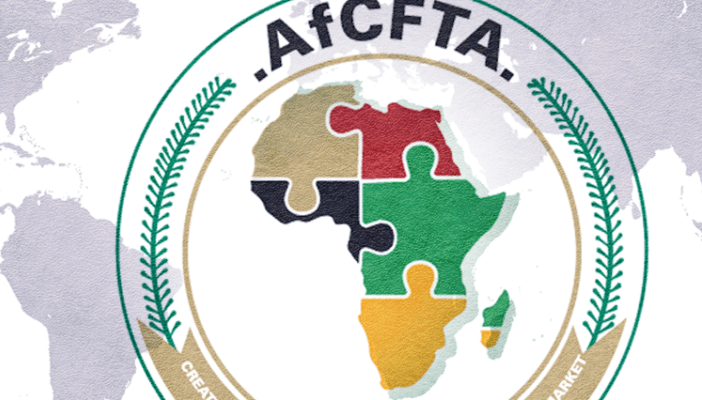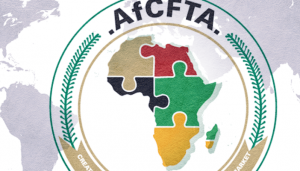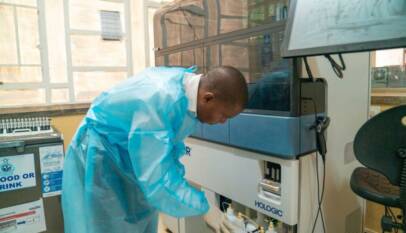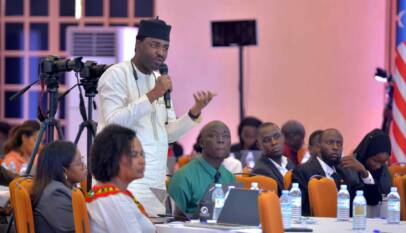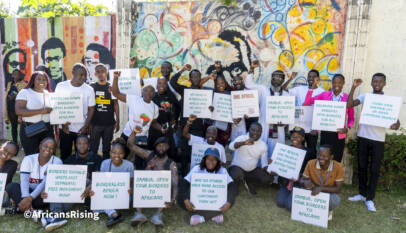OP-ED | AfCFTA: Will things be different this time? By Bruce Byiers
The AfCFTA faces challenges, but energy and optimism can carry it through.
This seems to mix a revolutionary mentality – “we’re making history” – with that of a startup – “everything is possible – why not try?”. The combination of this with high-level political leverage could well be the reason that, despite scepticism towards the agreement, this time is different.
Problems implementing reforms
The logic for the AfCFTA is quite clear – a reduction in tariffs and barriers to trade across the continent should allow for economies of scale and thus encourage investment, leading to greater industrialisation, productivity and value added, leading to higher incomes and thus further enlarging the market, setting off the following virtuous circle.
But each of the steps in the circle is a complex policy area of its own. That means it is also riddled with vested interests and incomes that depend on the status quo. Implementing the relevant reforms to unleash the AfCFTA benefits depends on factors including administrative capacity, finance for both public and private means, relevant institutional structures and the information and capacity to use the policies – but also overcoming potential blockages from those who stand to lose from reforms.
Implementing a regional or continental FTA therefore requires the emergence of some form of development bargain around all of these key policy areas. This also applies to some of the key objectives of the AfCFTA beyond trade – simplifying the institutional environment; promoting industrialisation and regional value chains, and facilitating trade along corridors.
The question then is whether and how the political ambition and activism of the AfCFTA Secretariat can work with national and regional actors to overcome hurdles in these different reform areas.
AfCFTA’s ambitions go beyond trade
Although at one level the AfCFTA is “just” a free trade area, the ambitions it reflects go far beyond trade. A key component here is industrialisation, and thus investment – if the AfCFTA cannot trigger investment in order to take advantage of larger markets, the benefits will be considerably lower than those initially foreseen. But much will depend on how the trade in goods and services protocols are implemented, and indeed how ongoing negotiations turn out and feed into national and continental industrialisation ambitions.
But the challenge has often been that national industrial imperatives often trump regional objectives. Further, industrial policy successes have often been at the cost of regional free trade – eg Mozambican sugar and Nigerian cement both emerged as growth sectors thanks primarily to barriers to regional imports.
The precedence of national industrial priorities suggests the need for regional industrial policies to be defined as complements to national level industrial ambitions; to link to specific infrastructures and corridors rather than take a broad top-down approach, and to seek coordination in key value chains where RVC potential seems to exist.
Other industrial support measures include specialist centres similar to the COMESA Leather and Leather Products Institute, a regional centre based in Addis Ababa for use by COMESA members who choose, now rebranded as the Africa Leather Centre. Similar such centres might be envisaged for other key sectors like automobiles, pharmaceuticals, textiles or indeed e-commerce and services.
Can AfCFTA shape future investment?
Beyond new policies, one challenge apparently facing AfCFTA negotiators is a difference in view on how the AfCFTA can and should shape future investment. Relaxed rules of origin in the outstanding textiles and auto sectors would allow easier entry into those value chains for countries low down the industrialisation ladder.
But the argument goes that more stringent requirements are more aligned with “developmental regionalism” and thus what will actually promote investment, helping trigger the structural transformation that has so far often lacked.
This discussion is akin to that between World Bank Chairman Justin Lin and Ha-Joon Chang on whether development policy should be based on existing or dynamic comparative advantage. As that debate highlighted, the real question is finding the tipping point where rules of origin will be strict enough to encourage investment, while not excluding countries with low industrial capabilities from the opportunities offered by basic manufactures into the continental market.
Maintaining optimism
Following Cop27 and Africa Industrialisation Week, how trade and investment can help African economies adapt to climate change and leapfrog towards green industries is also an increasingly important issue. Again, there are an array of continental, regional and national strategies – the AU’s 2022 Climate Change and Resilient Development Strategy is essentially a continental low-carbon development strategy, while the African Union’s 2021 Green Recovery Action Plan (AU-GRAP) seeks to channel international climate finance towards sustainable economic development, including industrialisation, and transport systems.
Here, the AfCFTA may be the lightning conductor required to translate these from continental plans to practical action, if indeed the political momentum can be used to finalise negotiations with a view to promoting green investment.
Optimism around the AfCFTA will be important to maintain, not just to complete AfCFTA negotiations but above all, to ensure implementation and that the wider benefits can flow. But what will really make a difference is some explicit acknowledgement of how different interests play out around trade and investment between and within countries and thus the need to adapt policies accordingly. Then maybe indeed this time will be different.
Bruce Byiers heads the African Economic Integration Programme at the Centre for Europe-Africa Relations. This article was originally published on African Business. The views expressed in it are the author’s and do not necessarily reflect African Newspage’s editorial policy.

